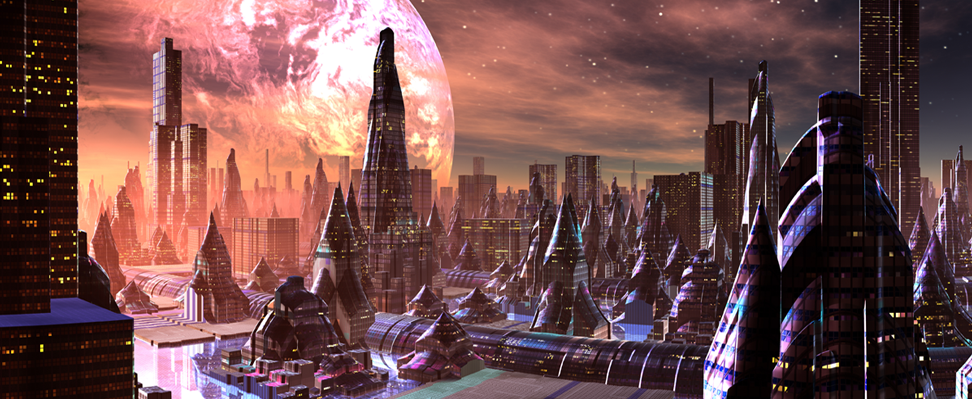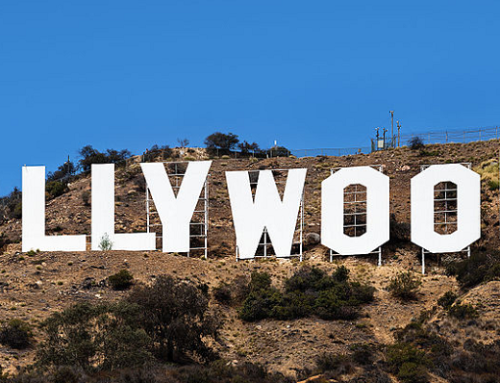[by Shannon Roberts]
Science fiction, as a genre, has often struggled to be taken seriously. Oh, it’s garnered some respect, a few classics, and a bucketful of noteworthy authors, but how seriously are we expected to take a class of fiction that still doesn’t even warrant its own section in too many bookstores?
Don’t get me wrong: Science fiction was gaining in popularity (though not by that name) in the late 19th century, and came admirably into its own over the course of the 20th century. Yet I feel there remains a slight stigma, a kind of condescendence around this genre. Which is unfortunate, because what is science fiction if not a medium through which storytellers portray the core characteristics of humanity—what we are, what we strive for, what we run from?
Take Ray Bradbury. The Martian Chronicles was, at heart, a series of essays on what man carried with him when he left earth: a sense of adventure, fear of the other, compassionate morality, and even a sense of manifest destiny. Bradbury chose to showcase these virtues and vices by placing man on an alien frontier. Whether the story takes place on Mars or right here in a near dystopian future, the premise of most (good) science fiction is the same—how does man respond when tested, by travel or technology? Because of this, the very best science fiction has the capacity to be either an inspiration or a terrifying warning.
Quite a lot of science fiction falls into the ‘terrifying warning’ category; Brave New World and 1984 are only two of the most recognizable titles. Being so often set in the near or distant future, science fiction is an ideal forum in which authors can portray the possible consequences of man’s current actions. Yet future (and current) authors shouldn’t be deterred: not only is inspirational science fiction possible, it’s necessary. Humanity as a species seems to be in an almost constant state of crisis. It’s easy to imagine how we might go wrong, but what about all the ways in which we might go right?
Technology is ever-advancing, and one hopes that human ethics will advance with it. Science fiction has always addressed popular social issues, but even social issues are changing (or perhaps we’ve simply created more). Racism—fear of the other—may, unfortunately, always be a prevalent issue in our society and others. What about a science fiction story that addresses the consequences of a society that relies increasingly on electronic communication? Where are the sci-fi stories depicting a world where your presence on social networking sites is the penultimate determinant of your social worth and standing? Such stories exist—I highly recommend the YA novel Skinned by Robin Wasserman—but these are the kinds of things science fiction authors need to consider. Much of science fiction is dated by the fact that the technology it depicts is rapidly coming into being—it’s no longer fiction, but reality.
So far, we’ve determined that science fiction should say something important and draw from current trends and technologies. Sound advice, but what else? Consider this: a lot of mainstream science fiction revolves around advancements in tools, equipment, machines. What about biological advancement? Imagine a future where humans have abandoned the circuit board for the cell, a world where everything is a grown, living organism—even the ‘machines’. Again, these ideas are out there, but even though sci-fi as a genre is about endless possibility, it’s also a genre in which its remarkably easy to fall into a rut.
Maybe it’s not the world that’s changed, but mankind: just because science fiction should say something about humanity doesn’t mean it has to address how humanity is now. We could become many things in the next fifty years, or in the next thousand. It might be glorious, it might be horrific, but the undeniable truth is that man will evolve.
Perhaps the best advice I can give a budding science fiction author is this: use your imagination. You have something important to say, even if it seems ridiculous in the confines of your head. What are we? Where are we headed? What could we become, and how could we get there? If you have any thoughts about any of these questions (and who doesn’t?), I recommend jotting them down. Even if you’re not right, it could be the makings of a great story.
Recommended Reading
George Orwell’s 1984 has transcended the definition “classic”, entrenching itself in our culture. Everytime the term “Big Brother” is used, or something is described as “Orwellian,” you can thank the amazingly prescient writing contained in this novel’s pages.
It seems a little strange that the future of Ray Bradbury’s The Martian Chronicles should have already happened (the book is set in 1999, of all things), but regardless, this collection of short stories is the Winesburg, Ohio of science fiction, exploring the loneliness of space far before David Bowie approached the subject on record.
Brave New World began as Aldous Huxley’s attempt to provide a cynical parody of H.G. Wells’ optimistic view of the future, but turned into a masterpiece of its own, warning of a Utopian society gone horribly wrong.
Skinned tells of a future that doesn’t seem too far off, with brains transferred into new bodies and social networks (tied into clothing) that determine social standing. While Robin Wasserman is classified as an author for young adults, her skill and ability to tell a story make her work enjoyable for adults as well.







